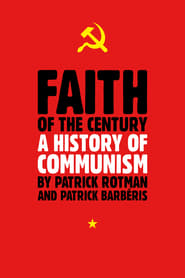War Politics TV Series - Page 60
-
The Great Escape II: The Untold Story
1988
star 5.7A former POW leads a special task force to hunt down the culprits responsible for carrying out the orders to murder 50 of the 76 escapees from Stalag Luft III. -
Faith of the Century: A History of Communism
1999
star 8.5Communism spread to all of the continents of the word, lasting through four generations and over seven decades. Hundreds of millions of men and women were affected by this political system, one of the most unjust and bloodiest in history. Using newly discovered propaganda films and archival photos, these four episodes explore the mysteries of this totalitarian political machine that lured its share of important followers into the fold. Known as the red church, communism seduced its ardent followers like some earthly religion. -
No Price Too High
1995
No Price Too High
1995
star 10The Canadian contribution to World War Two was extraordinary in scale and variety. More than one million people, out of nation of just eleven million, volunteered to serve. To transform a small, virtually unequipped military into a powerful army, navy and air force was a remarkable achievement. No Price Too High traces Canada's involvement from the prewar years through 1945, explaining the events of the war in the context of the political and military realities of the time. There is none of the second guessing that has characterized so much recent analysis of the war. No Price Too High draws on original sources - personal letters and diary entries, and powerful photographs - to evoke the mood of those momentous years. The thoughts, hopes, dreams, fears, and heartbreaks of the generation of Canadians who faced the war are captured. Produced by Norflicks, No Price Too High chronicles Canada's role in the major events of the war, including The Battle of Britain, Dieppe and D-Day. -
新亮剑
2011
新亮剑
2011
-
Ranneeti: Balakot & Beyond
2024
star 8Post the deadly Pulwama attacks, Kashyap and his team strike back with a fitting reply. In the age of hybrid warfare, they must race against time to bring back their captured pilot while also battling Pakistan’s lies in global media. -
五星红旗迎风飘扬2
0000
-
The Lesson
2022
The Lesson
2022
star 6.2In a sleepy high school in Kfar Sava, in a Citizenship class, 12th-grader Lianne and her teacher Amir get into a heated political confrontation that gets out of hand and soon reaches personal and painful places. -
Hannity
2009
Hannity
2009
star 3.3Hannity is a television show on the Fox News network, a replacement to the long-running show Hannity & Colmes. It is hosted by conservative political pundit Sean Hannity. Following the announcement on November 25, 2008 that Alan Colmes would leave the show, it was decided that the show would simply be entitled Hannity. -
仁者无敌
2008
仁者无敌
2008
During the Chinese Civil War, Du Xiumei leads a Red Army guerrilla group against Nationalist forces in the Silver River region. Amidst betrayal and mysterious deaths, local figure Pi Degui, with hidden loyalties, risks everything to aid the revolution and protect his comrades. -
The Spanish Civil War
1983
Documentary series which uses film and eyewitness accounts from both sides of the conflict that divided Spain in the years leading up to World War Two, also placing it in its international context. -
红箭
2014
红箭
2014
-
Chronicles of the Russian Revolution
2025
star 6.4The history of the tragic events of the October Revolution. The period from 1905 to 1924 was a difficult epoch that influenced the fate of people not only in Russia, but also the whole world in the XX century. -
Impossible Mission
2016
Impossible Mission
2016
-
Prime Minister Chen Ting Jing
2018
A story that follows Chen Ting Jing, a righteous man who becomes a premier of the Qing Dynasty. In the 23rd year of the reign of Kangxi, Chen Tingjing receives orders from the Emperor to investigate a fraud case in Shuntian Village. The case ignite Chen Ting Jing's difficult campaign to fight corruption and promulgate reform as he becomes embroiled in the political struggle amongst powerful factions within the royal court. -
杀寇决
2014
杀寇决
2014
-
卧底
2015
卧底
2015
-
Military Intelligence. The First Blow
2012
star 7During World War II the Red Army sends a special unit named "Zvezda" ("The Star") on a mission to conduct Guerilla warfare against the Germans in the Soviet Union. -
Keşanlı Ali Destanı
2011
-
On the Mountain of Tai Hang
2015
Amid the brutal War of Resistance Against Japan, commanders Liu Bocheng and Deng Xiaoping lead the 129th Division into the Taihang Mountains, uniting civilians and fighters in a daring guerrilla campaign to repel the Japanese invasion and protect China’s liberated territories.



















